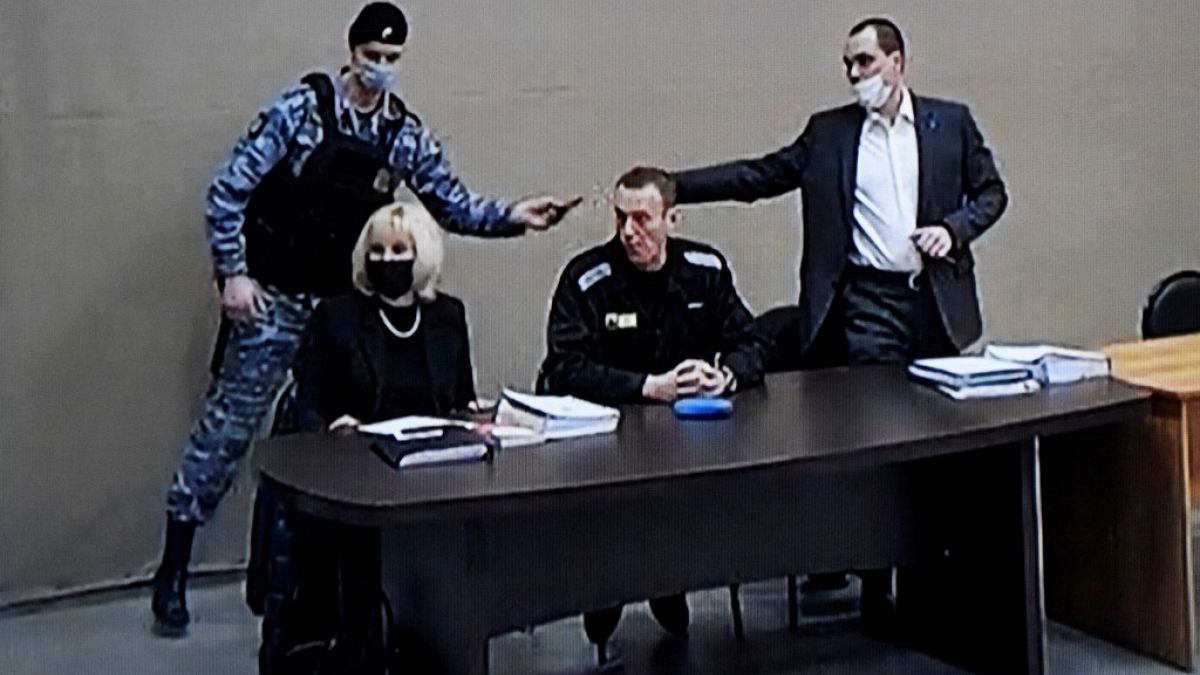The Russian opposition leader is already serving a 2.5-year sentence in a maximum-security detention centre.
Russian opposition leader Alexei Navalny has gone on trial in a Russian court on fresh fraud charges.
Navalny is already serving a two-and-a-half-year prison sentence for a 2014 fraud conviction he has labelled as "political".
The Kremlin critic faces an additional 10 to 15 years in prison if found guilty of alleged fraud.
Navalny is accused of embezzling around 356 million roubles (€4 million) in donations from several non-governmental organisations. He also faces an additional six months in prison for contempt of court during one of his hearings last year.
Navalny appeared in a court from his detention centre on Monday, alongside his lawyers and surrounded by several guards. His wife Yulia Navalnaya was also present at the start of the trial and said the new charges were "illegal" and "dishonest".
Russia's opposition has claimed that Moscow has influenced the trial proceedings by forcing Navalny to appear from prison.
"I have not yet been found guilty, but I am being presented in prison clothes," Navalny told the court on Tuesday.
"I say this to those who are against the plundering of Russia, to those who do not like United Russia [Vladimir Putin's party], I will continue to fight."
"With this new trial starting, it is clear that the Russian authorities are trying to ensure that Navalny is not released from prison any time soon," added Marie Struthers, Amnesty International's director for Eastern Europe and Central Asia.
Navalny was arrested upon his return to Russia in January 2021 after spending several months recovering from a nerve agent poisoning that he blames on the Kremlin. Moscow has denied the allegations.
The 45-year-old was jailed in February last year and has been serving his sentence in the maximum-security Pokrov prison colony No. 2, 100 kilometres east of Moscow.
Since his imprisonment, there has been a crackdown on Navalny's supporters and allies.
The Kremlin critic's Anti-Corruption Foundation (FBK) was branded an "extremist" organisation last year, leading to its closure and forcing many opposition figures into exile. Last month, Navalny himself was also placed on a Russian list of "terrorists and extremists".
The opposition leader is still likely to face a third trial on extremism charges.
Navalny's imprisonment could risk igniting further tensions between the West and Moscow amid concerns over Russian troops near the Ukrainian border.
German Chancellor Olaf Scholz said that Navalny's conviction is "incompatible with the principles of a state governed by the rule of law".
Meanwhile, US Secretary of State Antony Blinken said he was "troubled by dubious new charges" against the Russian opponent and called for his "release".
"Alexei Navalny and his associates are targeted for their work to shine a light on official corruption," he wrote on Twitter.
"Russian authorities should release Alexei Navalny and end their harassment and prosecution of his supporters."
